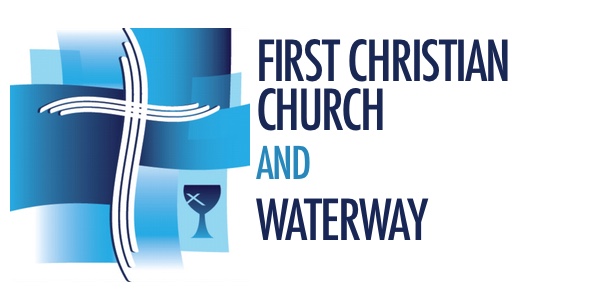We’ve been talking about Becoming Soul-Centered for the past 6 weeks now. In order to live from the center of our souls, we have to speak and live with authenticity. And the honest truth is, sometimes our souls feel incredibly heavy, burdened and bruised. Sometimes, the weight of life and suffering seems to be too much. So we talked in worship this morning about how at times, we simply need a balm for the soul.
We were blessed in worship today with a song from the Bentonville High School Chamber Choir. I had requested that they sing a song that has long been a staple of their performances: A Balm in Gilead. If you were not in worship with us, it’s hard for me to describe the beauty of the Chamber voices and the power of that song. My favorite part of the tune is when the choir sings with individually somewhat dissonant voices that warble throughout the sanctuary before finally settling into harmonious whole. It is symbolic for me of the struggle for unity and harmony we seem to be suffering through in our present time - yet also a reminder that peace and harmony is not altogether lost.
Here are one verse and chorus from that song: “Sometimes I feel discouraged, and think my work’s in vain; but then the Holy Spirit revives my soul again. There is a balm in Gilead to make the wounded whole. There is a balm in Gilead to heal the sin-sick soul.” The balm in Gilead is a reference to Jeremiah 8:22, where the prophet, distraught over the brokenness embodied by leadership and people of Israel, cries out: “Is there no balm in Gilead? Is there no physician there?” As opposed to the declarative promise of the song, the broken-hearted prophet just asks the question, seemingly unsure as to whether there is hope any longer. He has seen the brokenness of the nation, which has turned its back on truth and justice and fighting for the neighbor. He knows that on their current trajectory, they are bound for self-destruction. And at least in that moment, he seems unsure whether they will turn back toward a healthy understanding of themselves and their neighbors. So he is left to just… weep.
I mentioned in worship that this is Black History Month. The Black journey in America has a lot to teach us about moving from brokenness to hope. I’m an enormous fan of the writing and speaking of Dr. Martin Luther King, and in reflecting about today’s message, I was reminded of a sermon he delivered at Mount Pisgah Missionary Baptist Church in Chicago in August of 1967, a few months before his life would be cut short by an assassin’s bullet. Dr. King was talking about the darkness he was experiencing in his movement for justice, and he referenced both Jeremiah and this song, whose lyrics were first penned by those trapped in the pain of slavery. Dr. King said: “I get weary every now and then. The future looks difficult and dim, but I’m not worried about it ultimately because I have faith in God. Centuries ago Jeremiah raised a question, ‘Is there no balm in Gilead? Is there no physician there?’ He raised it because he saw good people suffering often and evil people prospering. Centuries later our slave foreparents came along. They too saw the injustices of life, and had nothing to look forward to morning after morning but the rawhide whip of the overseer, long rows of cotton in the sizzling heat. But they did an amazing thing. They looked back across the centuries and they took Jeremiah’s question mark and straightened it into an exclamation point. Instead of asking if there is a balm in Gilead, they sang, ‘There IS a balm in Gilead to make the wounded whole! There IS a balm in Gilead to heal the sin-sick soul!’”
The brokenness of our days sometimes seems to fall more in line with Jeremiah’s haunting question than with the song’s declarative promise. Is there hope for our healing? Is there a doctor in the house? Sometimes, I wonder... But as discouraged as I sometimes may feel, yet still, I believe.
At times, our brokenness leads me to tears. But our hope is not lost. What is dissonant in us now can once again find harmony.
There is a balm in Gilead.

